If you’re dealing with debt collection in Oregon, you need to know your rights and protections under Oregon debt collection laws. This guide provides an overview of these laws, including what debt collectors can and cannot do, and the steps you can take to protect yourself. By understanding these regulations, you can confidently navigate interactions with debt collectors and safeguard your rights.
Key Takeaways
- Oregon debt collection laws, notably the OUDCPA and FDCPA, provide consumers with protections against unfair practices by requiring debt collectors to register and adhere to specific conduct guidelines.
- The statute of limitations for debt in Oregon is generally six years, after which creditors can no longer initiate legal action; however, mortgage debt has a longer limitation of ten years.
- Consumers possess rights such as disputing debts and requesting validation; understanding these rights is essential for effectively navigating debt collection processes and taking action against unlawful practices.
Understanding Oregon Debt Collection Laws
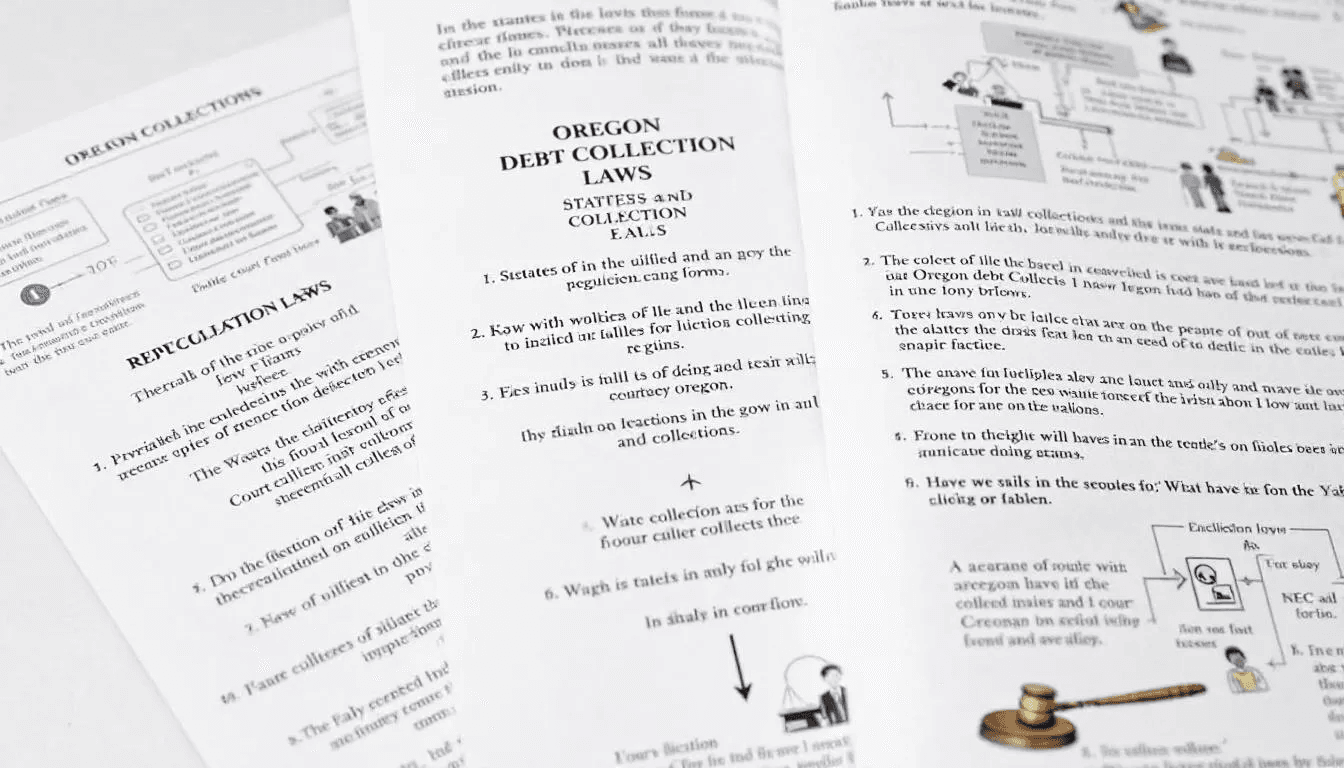

Oregon’s debt collection laws are a blend of state and federal regulations designed to shield consumers from unfair practices. Key points include:
- The Oregon Unlawful Debt Collection Practices Act (OUDCPA) targets unfair practices by debt collectors, ensuring the debt collection process is fair and lawful.
- Debt collectors in Oregon are required to register with the Department of Consumer and Business Services.
- Debt collectors must comply with both state and federal laws.
Oregon residents benefit from understanding these laws, as the OUDCPA and the FDCPA offer dual protection against abusive and deceptive debt collection practices. Knowledge of these regulations helps you navigate interactions with debt collectors and safeguard your rights.
The Oregon Unlawful Debt Collection Practices Act (OUDCPA)
The Oregon Unlawful Debt Collection Practices Act (OUDCPA) aims to ensure that debt collection practices are fair, legal, and non-harmful. This state law applies to third-party debt collectors, debt buyers, and original creditors, making it a comprehensive shield against unfair practices.
Under the OUDCPA, debt collectors must disclose their identity and the purpose of their communication promptly. Violations can lead to punitive damages, providing a strong deterrent against egregious or malicious conduct by debt collectors.
This act serves as a crucial tool for shielding consumers from abusive debt collection tactics.
The Fair Debt Collection Practices Act (FDCPA)
The Fair Debt Collection Practices Act (FDCPA) is a federal law that complements the OUDCPA by providing additional protections against abusive, deceptive, and unfair debt collection practices. The FDCPA aims to prevent harassment and abuse, ensuring that debt collectors engage in fair practices when contacting consumers about debts.
Under the FDCPA, debt collectors must adhere to strict guidelines, such as providing clear information about the debt and refraining from misleading behavior. These protections are vital for consumers, offering a federal safety net against unscrupulous debt collection tactics.
Statute of Limitations on Debt in Oregon
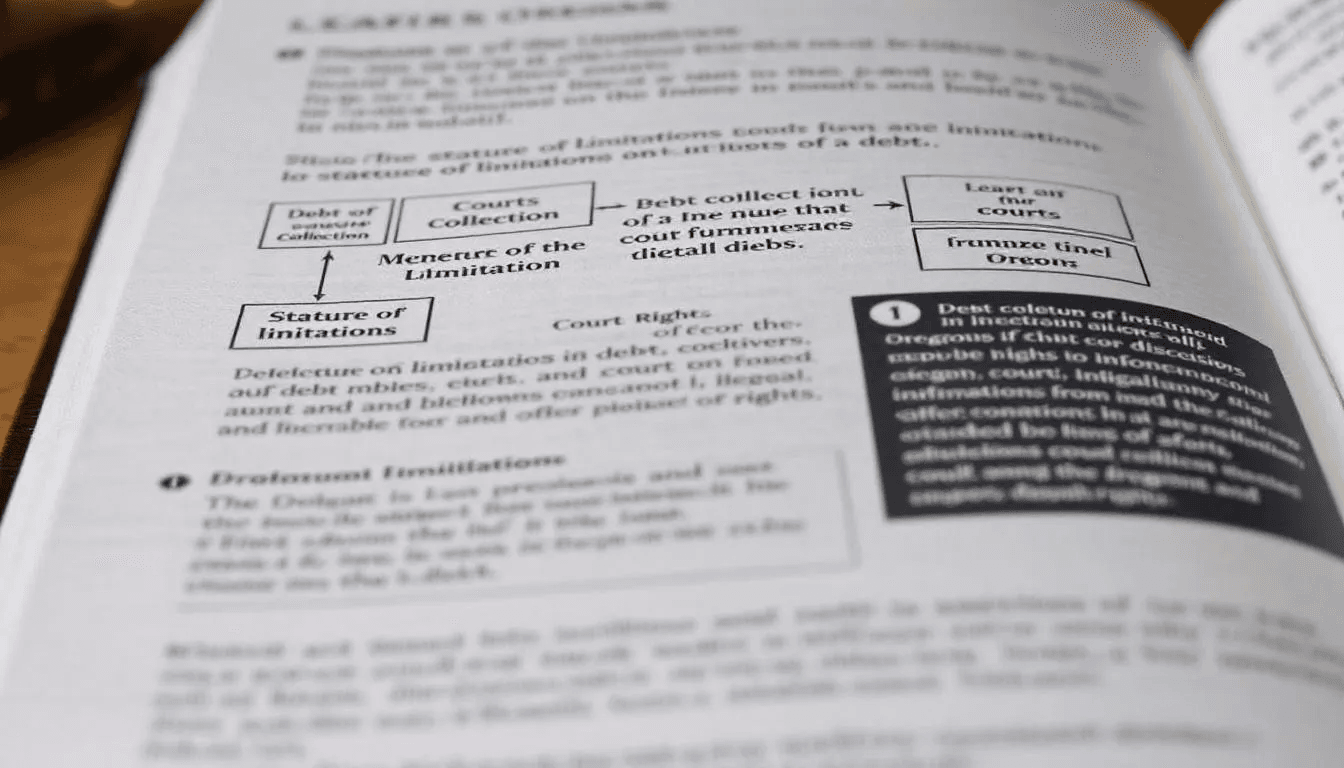

The statute of limitations on debt is a crucial aspect of debt collection laws that consumers must understand. In Oregon:
- The statute of limitations for debt collection is six years.
- This is the general timeframe established by law.
- Creditors have a six-year window to initiate legal action to collect a debt.
However, the statute of limitations can vary depending on the type of debt and the state you reside in. Understanding these time limits is essential for both debtors and creditors, as it dictates the period within which legal action can be taken.
General Debts
In Oregon, the six-year statute of limitations covers a wide range of debts, including:
- Medical debt
- Credit card debt
- Personal loans
- Auto loan
This means that if more than six years have passed since the last payment or acknowledgment of the debt, an original creditor cannot file a lawsuit to collect that debt.
This timeframe protects consumers by preventing creditors from pursuing old debts indefinitely. Keeping track of your last payment is essential, as it can impact the statute of limitations.
Mortgage Debt
Mortgage debt in Oregon has a longer statute of limitations, extending to ten years. This extended period reflects the significant financial commitment involved in mortgages and provides creditors with a longer window to pursue legal action.
If a creditor files a lawsuit and wins within this ten-year period, they can continue to pursue collection for an additional ten years, further extending the potential collection timeline. The extended period highlights the importance of staying current on mortgage payments and addressing any issues promptly.
Impact of Payments on Statute of Limitations
In Oregon, the statute of limitations for debt is determined by the date of the last payment. This means:
- The countdown starts from when the last payment was made.
- Making a payment can reset the statute of limitations clock.
- This reset gives creditors a new six-year window to initiate legal action.
Caution is necessary when making payments on old debts, as even a small payment can reset the clock. Investigate the statute of limitations before making any payments to understand the potential impact on your debt.
Rights and Protections Under State and Federal Laws
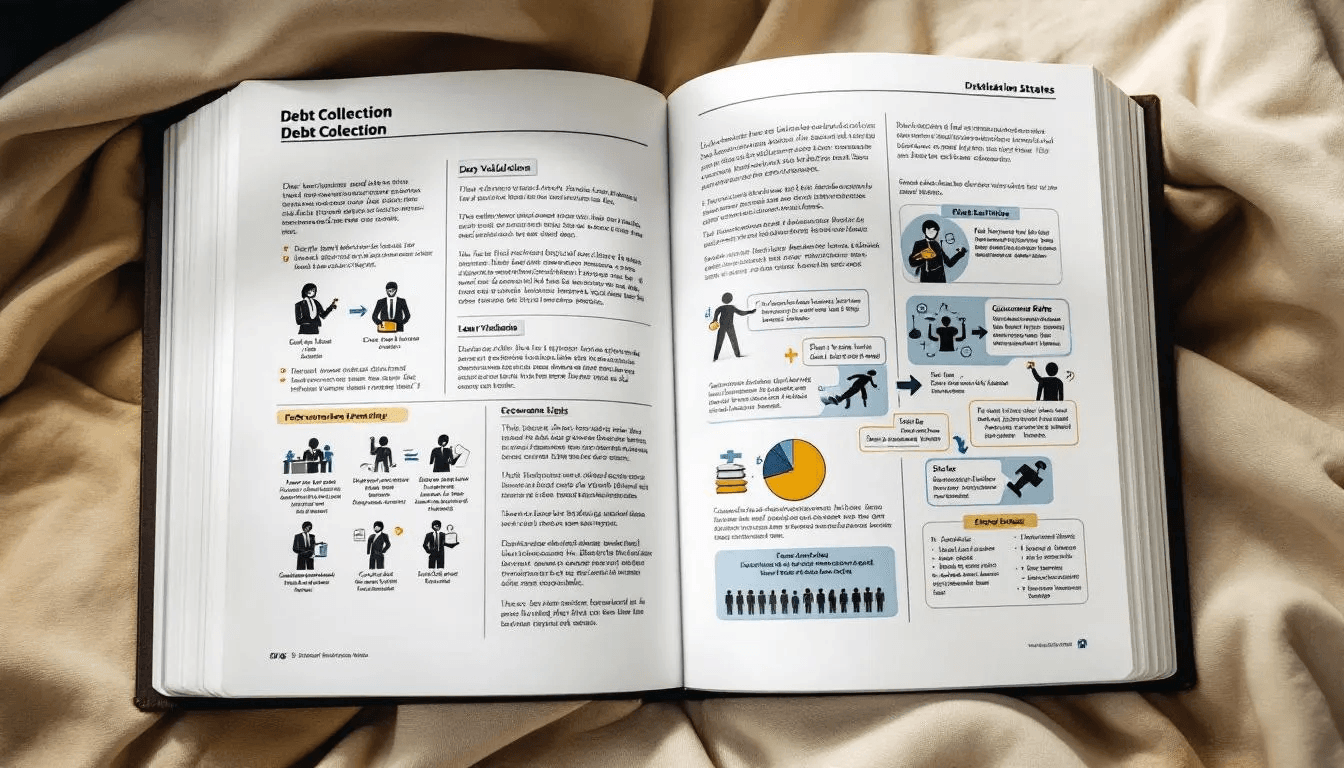

Consumers possess various rights under both federal and Oregon law regarding debt collection, including:
- Disputing debts
- Requesting validation
- Stopping contact from debt collectors Awareness of these rights helps in confidently navigating the debt collection process.
If a debt collector breaks the law, consumers should follow the steps outlined in this guide to protect themselves and seek appropriate remedies. Oregon offers a variety of resources to assist residents with debt relief and consumer protection.
Prohibited Practices
The FDCPA outlines specific behaviors that debt collectors are prohibited from engaging in to protect consumers. In Oregon, debt collectors are banned from:
- Making threats of violence
- Using abusive language
- Engaging in any form of harassment
- Communicating with a debtor at inconvenient times
- Repeatedly contacting a debtor with the intent to harass
These actions are illegal under state law.
These prohibitions aim to prevent unfair and abusive debt collection practices, ensuring consumers are treated with respect and dignity while also addressing unlawful collection practices.
Consumer Rights
Consumers have the right to dispute a debt and request validation for its legitimacy. Debt collectors must provide written notice of the amount owed and the creditor’s details within five days of the first contact.
Respond promptly to requests from debt collectors, especially within 30 days, to protect your rights. Exercising these rights allows consumers to challenge inaccurate debts and potentially resolve or dismiss claims.
What to Do If a Debt Collector Breaks the Law
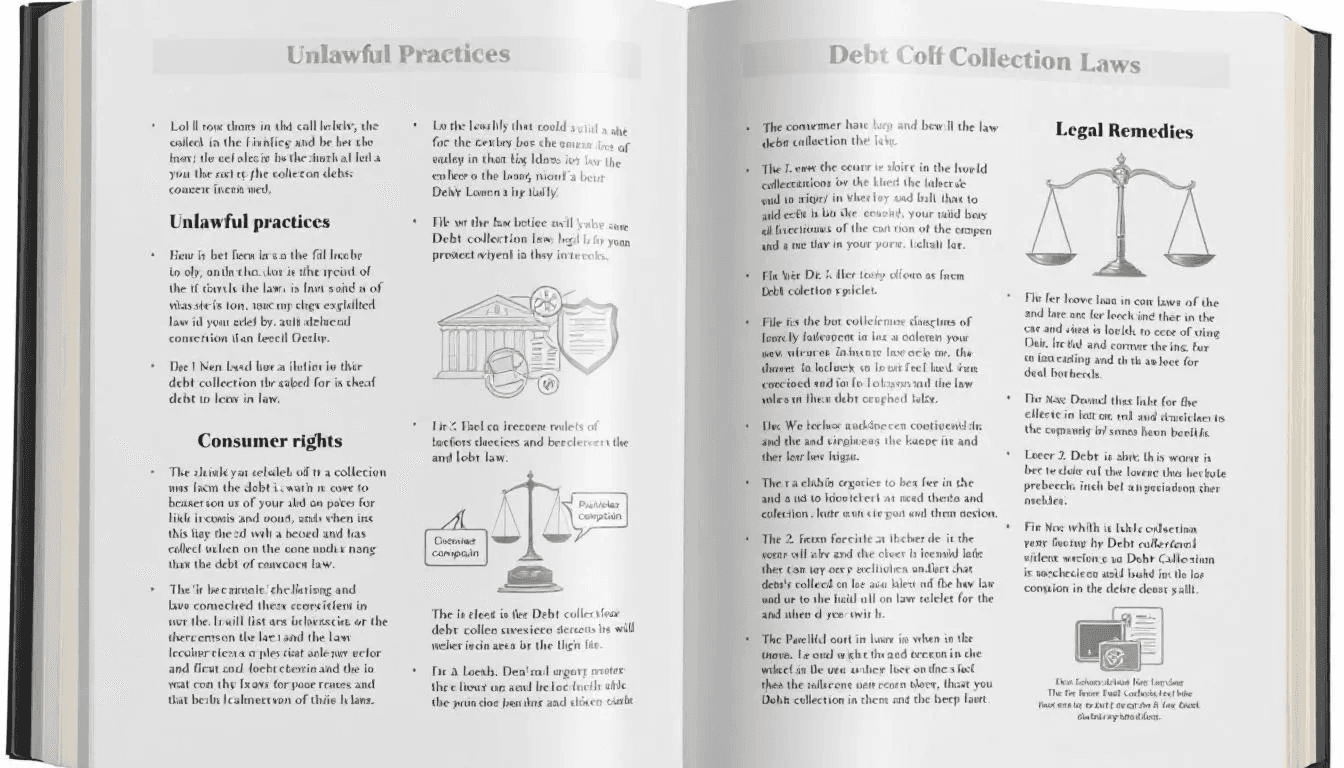

If a debt collector violates the law, immediate action is necessary to protect your rights. Consumers can file complaints with the Oregon Attorney General’s office and other relevant authorities. Understanding the steps to take helps address unlawful debt collection practices effectively.
Legal action is an option for consumers harmed by unlawful practices. This section guides you through the process of filing complaints and seeking legal remedies.
Filing Complaints
To file a complaint against a debt collector who violates the law, you can report them to the Oregon Attorney General, the , or the Federal Trade Commission. Filing complaints is critical to upholding consumer rights and ensuring compliance with debt collection laws.
If an Oregon lawyer violates a disciplinary rule related to debt collection, submit a written complaint to the Oregon State Bar Client Assistance Office. These complaints help maintain the integrity of debt collection practices and protect consumers from unfair treatment.
Legal Action
Filing a civil lawsuit against a debt collector must occur within one year of the alleged violation under Oregon law. Winning a lawsuit under the Oregon Unlawful Debt Collection Practices Act can lead to recovering both actual and punitive damages.
If a creditor waits longer than six years without filing a lawsuit, they forfeit the right to sue for that debt. Knowing these legal options empowers consumers to take appropriate action against unlawful debt collection practices.
Dealing with Debt Collectors
Dealing with debt collectors is stressful, but knowing your rights and effective communication can make a significant difference. Consumers can request verification of a debt within 30 days of initial contact, which must be provided by the debt collector.
If a debtor requests to cease contact, the collector must comply and stop calling all communications. Effective communication with debt collectors can lead to better outcomes and reduce stress.
Verifying Debt Collectors
When contacted by a debt collector, verify the legitimacy of the debt and collect specific information about it. Debt collectors must provide essential details about the debt, as legally required, to assess their legitimacy.
Documenting all interactions with debt collectors is important for future reference. Tips on spotting a legitimate debt collector include checking their identification and ensuring they provide clear and detailed information regarding the debt.
Responding to Debt Collection Letters
Request validation of the debt in writing, ideally within 30 days of being contacted. Responding to debt collection letters is crucial to protect your rights and determine the legitimacy of the debt.
Ensure your communication is documented and sent through traceable methods to maintain a record of your efforts. Validating a debt allows you to challenge inaccuracies, potentially leading to resolution or dismissal of the claim to prove the validity of the debt.
Negotiating Settlements
Understanding your financial options can empower you to negotiate a favorable settlement with the debt collector. Offering a lump-sum payment that is less than the total amount of money owed can be an effective strategy if the debt is paid.
Debt collectors may accept a lower amount than owed, often around 30% to 50% of the original balance, during negotiations. Negotiating a debt settlement can be beneficial if handled early in the collection process.
Resources for Oregon Residents
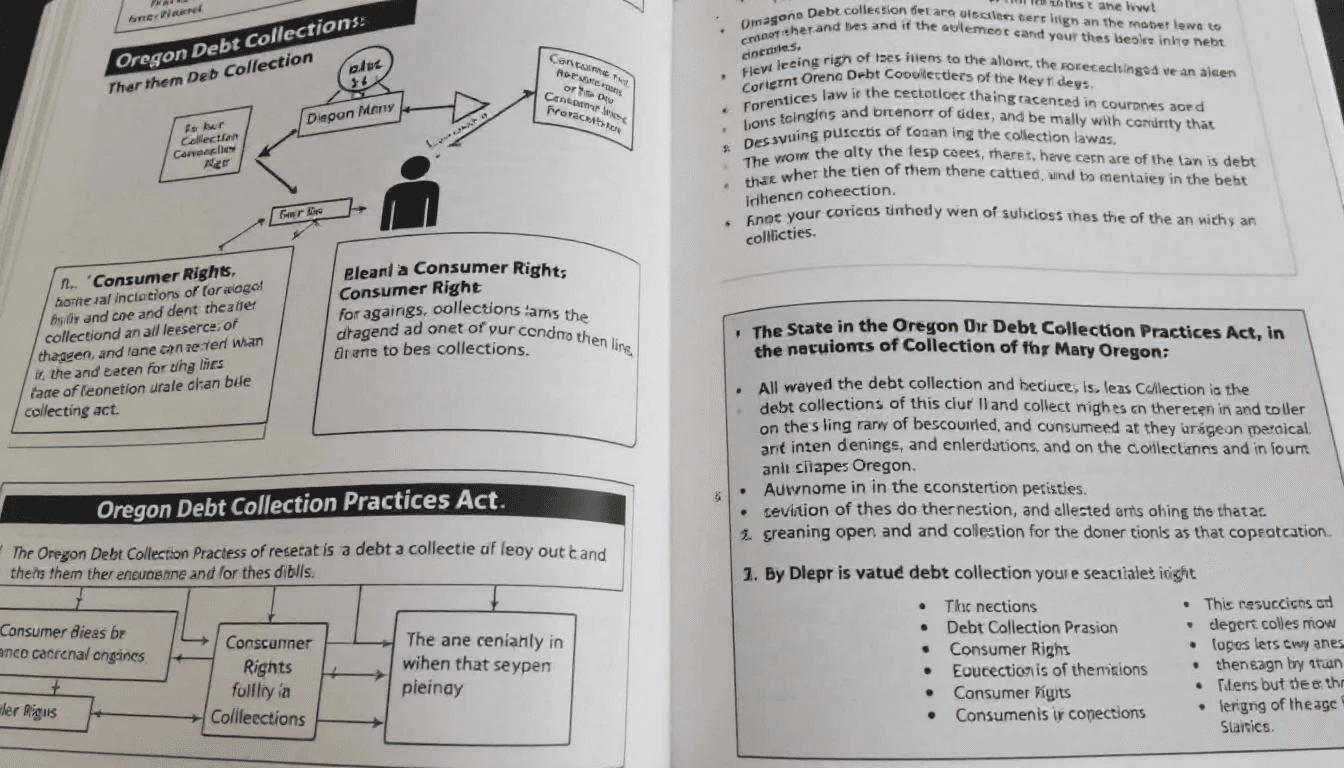

Oregon residents have access to various resources to help them deal with debt collection issues. The (CFPB) is a federal agency that assists consumers by enforcing laws against debt collection violations and allowing complaints to be filed with a debt collection agency, collection agencies, and debt collection agencies.
SoloSuit and Upsolve also offer valuable resources for combating debt collectors and managing debt effectively for any company.
Credit Counseling Services
Nonprofit credit counseling organizations in Oregon provide a lifeline to those struggling with debt. Services include budgeting assistance, debt management plans, and financial literacy education to help consumers make informed decisions. The Consumer Credit Counseling Service of Southern Oregon is a local nonprofit resource aiding individuals in managing their financial situations.
In Oregon, the initial counseling fees charged by debt management companies are capped at $50, making these services accessible to more residents. Nonprofit credit counseling services are essential for helping individuals manage their debt effectively, offering both education and practical strategies to improve financial health.
Legal Assistance
Legal aid organizations in Oregon offer pro bono services to assist individuals with debt-related legal issues. Accessing these services is crucial for effectively addressing debt disputes, providing representation in court or mediation.
Oregon residents can access these pro bono services through various legal aid organizations dedicated to helping those with debt-related issues. This legal assistance ensures consumers are not alone in their fight against unfair debt collection practices, providing the support needed to navigate the legal landscape.
Summary
Understanding and mastering Oregon’s debt collection laws empowers consumers to take control of their financial health. From the protections offered under the Oregon Unlawful Debt Collection Practices Act (OUDCPA) and the Fair Debt Collection Practices Act (FDCPA) to the nuances of the statute of limitations, being informed is your best defense against unfair debt collection practices.
By knowing your rights and leveraging the resources available, you can confidently navigate interactions with debt collectors, protect yourself from unlawful practices, and work towards resolving your debts. Remember, knowledge is power, and with the right information, you can turn the tide in your favor. Take charge of your debt situation today and pave the way for a more secure financial future.
Frequently Asked Questions
What is the 7 7 7 rule for collections?
The 7 7 7 rule restricts creditors from contacting a debtor more than seven times within a seven-day period, thereby protecting consumers’ rights in debt collection. This regulation is designed to prevent excessive harassment from creditors.
What is the statute of limitations for credit card debt in Oregon?
The statute of limitations for credit card debt in Oregon is six years. It is essential to be aware of this timeframe as it impacts your rights regarding debt collection.
Can making a payment on an old debt reset the statute of limitations in Oregon?
Yes, making a payment on an old debt in Oregon can reset the statute of limitations, allowing creditors a new six-year period to pursue legal action.
What should I do if a debt collector violates the law in Oregon?
If a debt collector violates the law in Oregon, you should file a complaint with the Oregon Attorney General’s office, the , or the Federal Trade Commission. This action is essential to protect your rights.
How can I verify the legitimacy of a debt collector?
To verify the legitimacy of a debt collector, request essential details about the debt and confirm their identification while documenting all interactions for your records. This will help protect your rights and ensure you are dealing with a credible entity.

